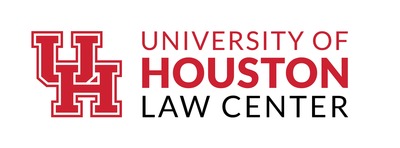|
01.03.2023 21:33:00
|
AI writing bots will change the lives of students and professionals says University of Houston Law Center scholar Salib
HOUSTON, March 1, 2023 /PRNewswire/ -- The use of artificial intelligence platforms such as ChatGPT will have widespread implications on education and in professional settings, according to University of Houston Law Center Assistant Professor Peter Salib. While ChatGPT has the potential for abuse and inaccuracies, Salib added that when used properly, it can benefit students and professionals.
"For everybody whose main work is writing things on a computer, this is a tool that is going to change how you work, especially as it gets better," Salib said. "ChatGPT produces mediocre content in response to complex questions. There might be some incentive to plagiarize, but probably not if a student wants an A."
"On the other hand, I'm not sure it's right to think of using those kind of language models in the classroom just through the lens of plagiarism. They're extremely useful tools, and they're going to be extremely useful tools for real people doing real work. I think we do a disservice to a student if we said these tools are not part of education, and they're forbidden to use them as they work their way through law school or their undergraduate education."
Salib said students should learn to use resources like ChatGPT, and that they can contribute to how a student thinks through issues and writes ideas. When it comes to universities making policy, Salib said it becomes more complicated.
"There probably shouldn't be just one policy for all kinds of assignments," he said. "We probably need something that's not one size fits all. There should be some kinds of assignments where students are told not to use a language assistant at all, so they develop the chops of writing something from scratch, thinking of something from scratch. There probably should be some assignments for which the requirements are use whatever tools you would like to produce something, but the final product should be more than 70% words you wrote.
"As professors, we have to ensure that when students do work for us that doing it well requires that you actually learn something. If an essay question is just copied and pasted into a ChatGPT prompt and the answer earns a B or B+, then we're not teaching students to use ChatGPT as a tool that helps them think, we're teaching them to use it as a replacement for thinking, and that's not good either."
Salib said using ChatGPT can help students formulate a first draft or an outline. But using it as the sole source for an assignment may not translate into good grades. A potential flaw in the use of such technology is that it can produce fabricated information.
"In most fields, especially in a field like law, you need what you write to be true," Salib said. "Most of what ChatGPT writes is true, but some of it is made up. If you're a lawyer, you have to see if the cases that ChatGPT cites and characterizes exist and say what the platform says it does."
In addition to his role at the Law Center, Salib is an associate faculty member at UH's Hobby School of Public Affairs. Prior to joining the Law Center's faculty, Salib was a Climenko Fellow and Lecturer on Law at Harvard Law School. After graduating from law school, Salib clerked for the Honorable Frank H. Easterbrook and practiced law at Sidley Austin, LLP, where he specialized in appellate litigation.
University of Houston Law Center media contacts: Carrie Anna Criado, UH Law Center Assistant Dean of Communications and Marketing, 713-743-2184, cacriado@central.uh.edu; Bonnie Buffaloe, Communications Manager, 713-743-9137, blbuffaloe@uh.edu.
About the University of Houston Law Center
The University of Houston Law Center (UHLC) is a dynamic, top tier law school located in the nation's 4th largest city. UHLC's Health Law, Intellectual Property Law, and Part-time programs rank in the U.S. News Top 10. It awards Doctor of Jurisprudence (J.D.) and Master of Laws (LL.M.) degrees, through its academic branch, the College of Law. The Law Center is more than just a law school. It is a powerful hub of intellectual activity with more than 15 centers and institutes which fuel its educational mission and national reputation. UHLC is fully accredited by the American Bar Association and is a member of the Association of American Law Schools.
About the University of Houston
The University of Houston is a Carnegie-designated Tier One public research university recognized with a Phi Beta Kappa chapter for excellence in undergraduate education. UH serves the globally competitive Houston and Gulf Coast Region by providing world-class faculty, experiential learning and strategic industry partnerships. Located in the nation's fourth-largest city and one of the most ethnically and culturally diverse regions in the country, UH is a federally designated Hispanic- and Asian-American-Serving institution with enrollment of more than 47,000 students.
![]() View original content to download multimedia:https://www.prnewswire.com/news-releases/ai-writing-bots-will-change-the-lives-of-students-and-professionals-says-university-of-houston-law-center-scholar-salib-301760057.html
View original content to download multimedia:https://www.prnewswire.com/news-releases/ai-writing-bots-will-change-the-lives-of-students-and-professionals-says-university-of-houston-law-center-scholar-salib-301760057.html
SOURCE University of Houston Law Center
 Der finanzen.at Ratgeber für Aktien!
Der finanzen.at Ratgeber für Aktien!
Wenn Sie mehr über das Thema Aktien erfahren wollen, finden Sie in unserem Ratgeber viele interessante Artikel dazu!
Jetzt informieren!
